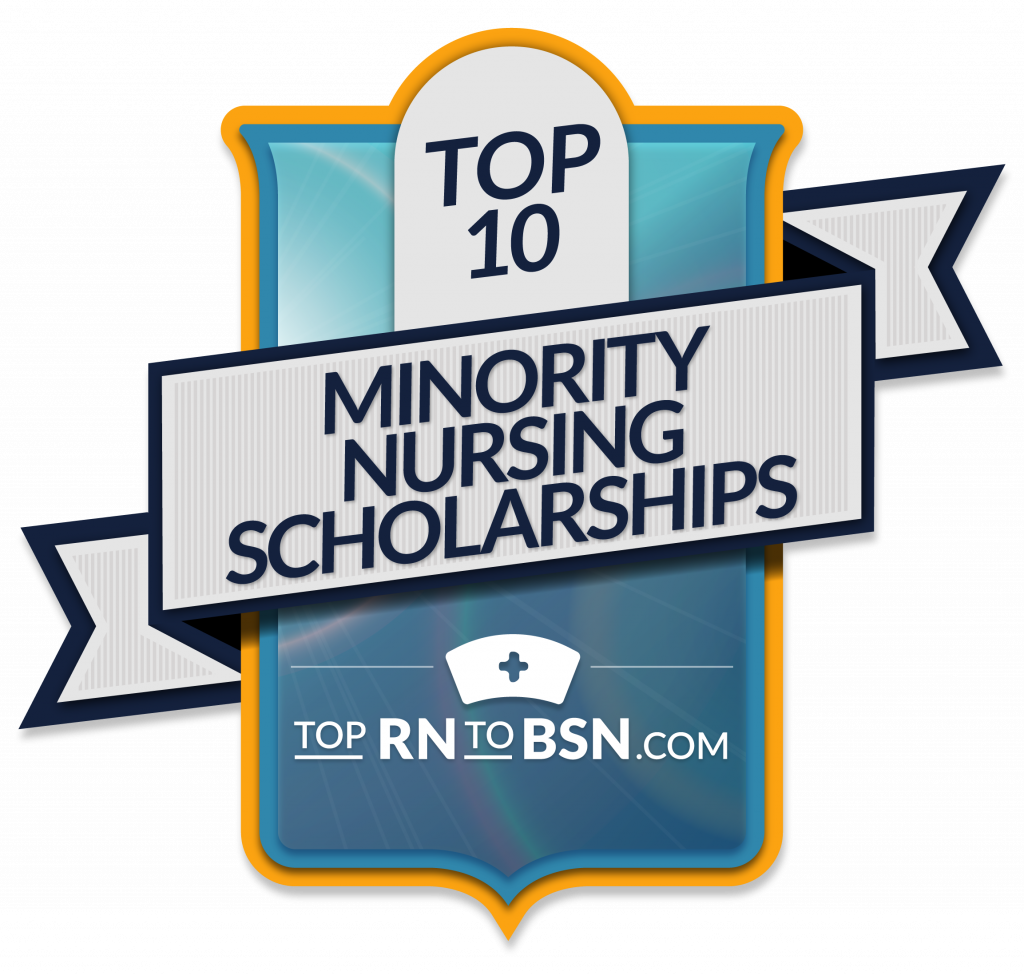
Minority Nursing Scholarships
These top minority nursing scholarships offer financial aid help so students can balance their responsibilities and achieve their career goals. With the growing cost of college tuition, students find it challenging to attend higher education opportunities without having unsurmountable student loan debt. Many minority nursing students are forced to work long hours during college to maintain their households, putting even more pressure on their schoolwork, and causing them to suffer. Many students end up postponing their schooling while they research BSN nursing scholarships. Finding nursing school scholarships for older students can help them balance their responsibilities while achieving their career goals.
Researchers believe that in the next 30 years, the U.S. will be a majority-minority country, necessitating more diversity in all healthcare fields, including nursing. Several organizations and foundations see this gap in representation as an opportunity to sponsor minorities by providing nursing scholarships specifically to them. For example, some offer scholarships for African American high school seniors or scholarships for Hispanic nursing students. Others are even more specific such as scholarships for African American males. Below you will find our Top Nursing Scholarships available.
1. Minority Nurse Magazine Scholarship Program
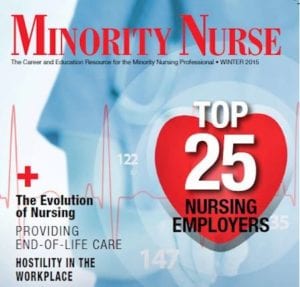
Minority Nurse offers a scholarship program every year that aims to help black nursing students earn a Bachelor or Master of Science in Nursing. The more education an RN has, the more opportunities will be available as a professional in the field of nursing. Over the years, forty students have been awarded the Minority Nurse scholarship program.
Scholarship Amount: $1,000 to$3,000 a year
Deadline: February
Organization: Minority Nurse Magazine
2. The Jackie Robinson Foundation Scholarship
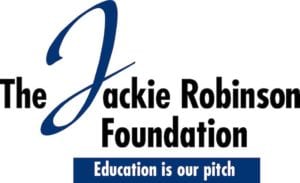
This scholarship is sponsored by the Jackie Robinson Foundation and offers to fund African American students who are working toward a bachelor’s degree program. The award is not degree specific for African American nursing scholarships. However, nursing scholarships are one of their most popular chosen by students looking for funding. The Jackie Robinson Scholarship also provides scholarships to minority high school students showing leadership potential and demonstrating financial need to attend an accredited 4-year college or university of their choice. It is available to all ethnic and racial minority groups.
The scholarship is part of a mentoring and leadership program. The requirements for the scholarship are as follows: recipients must be graduating high school seniors, plan to attend an accredited and approved four-year institution within the United States, show leadership potential, and show a desire to help communities in need. An applicant must present evidence of financial need to the scholarship committee and be a US citizen or permanent resident. Educational requirements include having a minimum SAT score of 1,000, which is a combination of both math and critical reading sections. The student must also have a composite ACT score of 21. If an applicant has already earned a college degree, they will not be eligible for the scholarship.
Scholarship Amount: $35,000 over four years
Deadline: early January
Organization: Jackie Robinson Foundation
More: Jackie Robinson Foundation scholarship opportunities
3. SAMHSA Minority Fellowship Program (MFP)
This scholarship program is for graduate students in a nursing program. The American Nurses Association (ANA) and the Substance Abuse & Mental Health Services Administration (SAMHSA) Minority Fellowship Program (MFP) offer two scholarships in cooperation. The Minority Fellowship Doctoral (MFP Doctoral) program was the first grant that offered financial support for minority nursing professionals pursuing doctoral degrees. The Minority Fellowship Masters is an initiative staffed by ANA with funding from SAMHSA, making fellowships available to all ethnic, minority, and racial psychiatric nursing students who are enrolled full time in an accredited master’s degree or doctoral degree nursing program.
Scholarship Amount: varies
Deadline: check website
Organization: American Nurses Association (ANA) and the Substance Abuse & Mental Health Services Administration (SAMHSA)
4. Barbara Rhomberg Excellence in Nursing Scholarship

B4brands sponsors the Barbara Rhomberg Excellence in Nursing scholarship. B4brands provides ECO-premium products that are used to protect the environment through wellness and infection control. It was founded in 2013, in memory of Barbara Rhomberg, a dedicated wife and mother who fulfilled her dream of becoming a decorated and skillful nurse after raising a family of eight. She desired to help minority students achieve a college degree that would typically not have a chance to accomplish. The scholarship fund is paid directly to the institution of the awardee’s school of choice.
The Barbara Rhomberg Scholarship is offered to a non-traditional nursing student. Most recipients are a full time student who waited at least three years before going to college after high school due to either military service, workforce, or family obligations. The award is non-renewable. However, past applicants or winners of the Barbara Rhomberg Excellence in Nursing scholarship can use it in the future. To be eligible for the award, a student must meet specific requirements. The applicant must be enrolled in an undergraduate nursing program for an associate’s degree. Or they must be enrolled in a nursing bachelor’s program to be eligible.
Scholarship Amount: $1,000
Deadline: March
Organization: B4brands
5. Johnson and Johnson Health Equity Scholarship
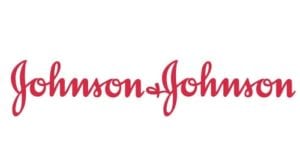
The Johnson and Johnson Health Equity Scholarship is sponsored by Nurses Educational Funds, Inc. (NEF). This award is meant to encourage minorities to earn advanced degrees. The program gives five (5) $10,000 scholarships, to exceptional doctoral nursing students who identify as underrepresented Nurses of the BIPOC community, or Black, Indigenous, People of Color representing, Black, Native American, Native Hawaiian, Alaskan Native, Desi, Asian, Pacific Islander, Chicanx, Latin, Latinx, and LGBTQIA+.
Scholarship Amount: $10,000 annually
Deadline: May 1
Organization: Nurses Educational Funds, Inc.
6. NCEMNA Scholars Program

The NCEMNA scholars program provides a unique opportunity for college students interested in the nursing field. Applicants qualify for the NCEMNA Scholars Program who belong to one of 5 associations including: Asian American/Pacific Islander Nurses Association, Inc. (AAPINA); National Alaska Native American Indian Nurses Association, Inc. (NANAINA); National Association of Hispanic Nurses, Inc. (NAHN); National Black Nurses Association, Inc. (NBNA); and Philippine Nurses Association of America, Inc. (PNAA).
The program provides nursing career opportunities to minority nursing students who want to make a difference in underrepresented communities. One of the primary goals for the award is to improve health and well-being in low-income communities and minority populations. The scholarship is not only for bachelor’s degree students, and graduate students may also apply for the NCEMNA Scholars program.
Scholarship Amount: five awards of $2,000 annually (one to each association)
Deadline: Spring
Organization: National Coalition of Ethnic Minority Nurse Associations (NCEMNA)
More: NCEMNA Scholars Program
7. NHHF Scholarships
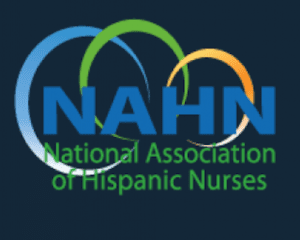
The National Association of Hispanic Nurses (NAHN) works to help minority students find funding for college. The association is a nonprofit organization working to inspire and advocate for the Hispanic communities. The number of scholarships offered each year to Hispanic nursing students depends on the amount of money in the scholarship fund. For example, the Hector Hugo Gonzalez scholarship is a program specifically for Male Hispanic or Latino students enrolled in a Baccalaureate degree in Nursing. The National Association of Hispanic Nurses list more scholarship funds on its website for Hispanic students earning a nursing degree.
Scholarship Amount: $1,000 to $4,000
Deadline: March 31
Organization: National Association of Hispanic Nurses (NAHN)
More: National Association of Hispanic Nurses NAHN Scholarships
8. The Ron Brown Scholarship
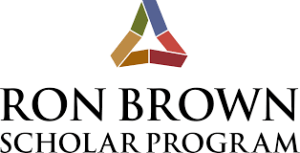
The Ron Brown Scholarship Program is open to African American high school seniors who are active in their community and demonstrate financial need. The program gives out 45 to 50 scholarships each year to black students who excel academically and show leadership potential within their communities.
Scholarship Program Requirements: US Citizen, Black or African American, and a high school senior at the time of application. High school transcripts, SAT scores, and letters of recommendation are also required. The applicant must submit two essays with the application, and each should be no more than 500 words. Recipients may use the funding for several items, such as tuition, fees, books, computers, living arrangements, and health insurance.
Scholarship Amount: $10,000 a year or up to $40,000 for four years
Deadline: early January
Organization: Ron Brown Scholar Fund is a public 501c3 charity and administers the Ron Brown Scholar Program (RBSP)
More: Ron Brown Scholar Program Scholarship Page
9. American Indian Nurse Scholarship Awards
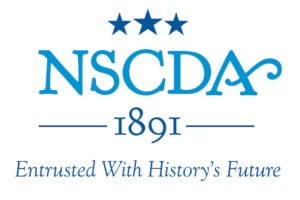
The American Indian Nurse Scholarship was created by the National Society of the Colonial Dames of America (NSCDA) back in 1928. It provides opportunities for eligible students of American Indian descent to receive a nursing degree from the high cost of college tuition. The scholarship for Native American nursing students is renewable, depending on passing grades being in good standing. Initially, this American Indian nurse scholarship was offered to only female students of American Indian heritage. However, due to the rise of male nurses, the scholarship award has expanded its application for male nursing students to attend college as well.
Scholarship Amount: $1,500
Deadline: Spring
Organization: National Society of the Colonial Dames of America (NSCDA)
More: American Indian Nurse Scholarship Awards from the National Society of The Colonial Dames of America.
10. Ethnic Minority Bachelor’s Scholarships in Oncology Nursing
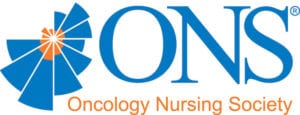
This scholarship is sponsored by the Oncology Nursing Society (ONS) Foundation. The duration of the Ethnic Minority Bachelor’s Scholarships in Oncology Nursing is one year. And the application must be filled out and sent in no later than the middle of January to meet the application deadline. To be eligible, the applicant must come from a minority ethnic or racial background, must have completed at least one year of college, and be an RN with an interest in and a commitment to oncology nursing.
Scholarship Amount: $2,000 annually
Deadline: early February
Organization: Oncology Nursing Society (ONS) Foundation
More: Bachelor’s Scholarship Ethnic Minority Bachelor’s Scholarships in Oncology Nursing
Below are more scholarship opportunities for nursing students attending an accredited school who demonstrate academic excellence. Many school require students to apply for financial aid options before they can receive scholarship money.
11. M. Elizabeth Carnegie African American Scholarship
The M. Elizabeth Carnegie African American Scholarship is awarded to black nurses enrolled in doctoral programs in memory of Dr. M. Elizabeth Carnegie. Qualifying applicants must demonstrate evidence of academic achievement as well as demonstrate financial need. Preference is given to students who are currently minority members of an African American / Black community.
Scholarship Amount: $2,000, annually
Deadline: February 1
Organization: Nurses Educational Funds, Inc.
12. NAANA Scholarships for Nursing Study
Members of the National American Arab Nurses Association (NAANA) who are nursing students or practicing nurses qualify for scholarships. NAANA’s merit-based annual scholarships are awarded to undergraduate and graduate nursing students. They include Associate Degree, Bachelor degree, RN-BSN, BSN-MSN (Master’s in Nursing), or Doctorate (DNP or PhD) level nursing programs.
Scholarship Amount: $500 to $1,000
Deadline: August 31
Organization: National American Arab Nurses Association (NAANA)
More: NAANA Scholarships for Nursing Study
13. IHS Scholarship Program
The Indian Health Service (IHS) offers scholarship programs for Alaska Native and American Indian college students. Award amounts for Native American nursing students vary, and recipients must commit to work in an Indian health program for two years.
Scholarship Amount: varies
Deadline: mid August
Organization: Indian Health Service
More: Indian Health Service IHS Scholarship Program
14. AAPINA Scholarship Program
The Asian American/Pacific Islander Nurses Association, Inc (AAPINA) awards scholarships to members pursuing an undergraduate or a graduate nursing degree. Eligibility requirements include evidence of excellent academic performance (GPA > 3.5/4.0) in an accredited undergraduate or graduate nursing program. Applicants must also submit a personal essay and two letters of recommendation.
Scholarship Amount: $500 annual scholarship
Deadline: June
Organization: Asian American/Pacific Islander Nurses Association, Inc
15. Alaska Native Tribal Health Consortium Scholarships
The Alaska Native Tribal Health Consortium (ANTHC) awards ten $5,000 scholarships to qualified Alaska Native and American Indian students. This scholarship covers tuition, books, fees, room, and board.
Eligibility Requirements: must be a Alaska Native or American Indian and a permanent Alaska resident. Applicants must be enrolled full time in higher education pursuing an associate, bachelors, masters, and PhD in nursing or a health care related field.
Scholarship Amount: $5,000
Deadline: August
Organization: Alaska Native Tribal Health Consortium
16. NBNA Nursing Scholarships
The National Black Nurses Association (NBNA) provides scholarships to students from LPN to Doctorate level degrees. It offers various need-based scholarships for Black nursing students to help increase representation in nursing. Below are some of the many African American nursing scholarships for NBNA members administered by the National Black Nurses Association.
- Abbott Scholarship Fund
- Arizona College of Nursing Scholarship
- Aya Healthcare Nurses of Tomorrow Scholarship
- BAND AID BRAND Black Healthcare Heroes in Nursing Scholarship
- Dorothy B. Martin Scholarship
- Dr. Martha A. Dawson Genesis Scholarship
- George E. McGuire Memorial Scholarship
- Dr. Millicent Gorham Scholarship
- JAYHAL Foundation Scholarship
- Mrs. Ola Lofton Scholarship
- Margaret Pemberton Scholarship
- Maria R. Dudley Advanced Practice Nurse Scholarship
- NBNA Board of Directors Scholarship
- Ebi Porbeni Memorial Scholarship by Be The Match
- National Black Nurses Association NBNA Social Justice Scholarship
- NurseThink.com Scholarship
- Supplemental Health Care (SHC)
- The Lifepoint Health Equity in Nursing Scholarship
- United Health Foundation for Diversity in Health Care Scholarship
- VITAS Healthcare / Esther Colliflower Scholarship
Scholarship Amount: $1,000 to $15,000
Deadline: mid March
Organization: National Black Nurses Association
More: National Black Nurses Association NBNA Nursing Scholarships
17. Udall Undergraduate Scholarship
Udall Undergraduate Scholarships are awards up to $7,000 for Native American and Alaska Native college students. Applicants should be working towards a career that will make a positive impact on health care for Native Americans and Alaska Natives. Recipients must agree to work in Native American communities during their careers.
Scholarship Amount: up to $7,000
Deadline: see website
Organization: Udall Foundation
18. PNAA Foundation Scholarship
The Philippine Nurses Association of America, Inc offers annual scholarship awards to graduate students pursuing a master’s degree in nursing, a post master’s degree, or doctoral degree.
Scholarship Amount: $1,000 to $2,000 per year
Application Deadline: see website
Organization: Philippine Nurses Association of America (PNAA)
More: Philippine Nurses Association of America Foundation Scholarship
19. Native Hawaiian Health Scholarship Program
The National Health Service Corps (part of the US Health Resources and Services Administration) offers this scholarship to native Hawaiians pursuing careers in health care. This minority nursing scholarship supports native Hawaiian healthcare workers and underserved Native Hawaiian populations. Native Hawaiian Health Scholarship Program covers tuition, provides a monthly stipend, and covers all costs to attend school. In exchange, recipients must work in high-need and rural communities in Hawaii for a period of time after they graduate.
Scholarship Amount: scholarship funds cover ALL school tuition and fees; an annual payment for Other Reasonable Costs (ORC) to cover expenses not included in tuition and fee costs (books, clinical supplies, instruments); and a monthly stipend to cover living expenses.
Application Deadline: March
Organization: National Health Service Corps
20. Justine E. Granner Memorial Scholarship
Applicant must be American Indian or other ethnic minority student and plan to pursue a nursing education at a school of nursing within the state of Iowa.
Scholarship Amount: $1,000
Deadline: March
Organization: Iowa United Methodist Foundation

What are Barriers to Diversity in Nursing?
Nurses make up the largest group of healthcare providers in the United States. This fact means that nurses work in virtually all healthcare and community settings. For nursing professionals, gender, racial and income background diversity is vital for many reasons. Studies show that a reason for the health disparities in communities of color and low-income populations may be linked to a lack of representation by the people providing health education and care.
The main barriers to ethnic and gender diversity in nursing include stereotypes, lack of access to adequate training in individual communities, and financial barriers due to income disparities in racially diverse groups. The need to work during nursing school often means that low-income nursing students must extend their time in nursing school, delaying their income to grow, increasing their debt, and increasing the likelihood of dropping out of their program. The cultural stereotypes that men face when considering nursing also limit male representation in nursing.
The lack of diversity in Nursing Educators is another contributing factor. Many minority students lack emotional support through nursing school and face discrimination compared to white student nurses. So, to remedy the lack of representation of minorities in nursing education, schools need to establish diversity among their nursing educators and faculty.
What Harm is Caused by the Underrepresentation of Minorities in Nursing?
Not only is a balanced workforce better able to serve all of the populations of people who seek care, but they are stronger as a team. Learning cultural competence by being able to see the ways that people with the same background interact, can support multicultural relationships between nurses and patients. Even when other factors are equal like income or health insurance coverage, minority patients still experience below-average healthcare. These factors have been linked to several things including a lack of cultural competence and poor communication inter-racially.
According to research done by the Associated Press, by the year 2043, the U.S. is expected to grow into a majority-minority country, meaning that there will be more people of color than whites for the first time in history. This fact means that the health of non-white populations, and therefore the health of the country depends on a more diverse nursing field.

What are Organizations that Nurses who are Minorities can Benefit From?
For minority students who can find the encouragement they need to get into nursing school, and for those who have finished and are working, there are several organizations explicitly designed with their success in mind. Some of these national nursing organizations like the American Association of Colleges of Nursing (AACN), the Institute of Medicine (IOM), the American Nurses Association (ANA), the National League for Nursing (NLN), National Black Nurses Association, and the American Association of Colleges of Nursing (AACN) have all put in place diversity as a significant priority.
- American Association for Men in Nursing (AAMN)
- Asian American/Pacific Islander Nurses Association, Inc. (AAPINA)
- National Alaska Native American Indian Nurses Association, Inc. (NANAINA)
- Black Nurses Rock (BNR)
- National Association of Hispanic Nurses (NAHN)
- National Association of Indian Nurses of America (NAINA)
- National Black Nurses Association, Inc. (NBNA)
- National Coalition of Ethnic Minority Nurse Associations (NCEMNA)
- Philippine Nurses Association of America, Inc. (PNAA)
- National Indian Nurse Practitioners Association of America (NINPAA)
Tips for Applying for Nursing Scholarships
There are many scholarships for African Americans, Hispanic students, American Indians, and other minorities and underrepresented groups. Some nursing school scholarships have certain criteria and are only for nursing students studying full time or have a minimum GPA requirement. The various scholarships for college students can be very different. So, make sure you start early and thoroughly research all your nursing school scholarship options!
- Start Early: Applying for scholarships can be a time consuming process, so start as early as you can to give yourself plenty of time to find and apply for scholarships.
- Research the Opportunities: Do a deep dive and find the scholarships specifically targeted towards nursing students. For example, many hospitals offer scholarships for nursing students. Keep in mind the deadlines and eligibility criteria for scholarships.
- Prepare Your Documents: It is important to have all documents related to your application ready. Gather your transcripts, letter of recommendation, personal statement and any other required materials.
- Make it Personal: Make sure your application materials reflect why you are a great candidate. Use your own words and explain what you have accomplished and why you are passionate about nursing.
- Follow Up: Once you have submitted your application, contact the organization or school to confirm they received it and find out about the next steps. Be sure to thank whomever you talk to for their time and their consideration.
American Nursing Students
Organizations that offer nursing scholarships are an important source of financial assistance. And many also incorporate mentorship programs for minority nursing students. When we successfully recruit and retain nurses from diverse backgrounds, the health of minority communities will also improve. For a country like ours, we cannot afford to let another decade pass without addressing diversity in American nursing. It improves health care
Many schools have specific scholarship information and financial aid options specific to the school, state, and nursing degree program. So, whether you are a high school graduate just starting or have one year of school remaining, make sure you check with your college for all the options. Good luck!
Related:






